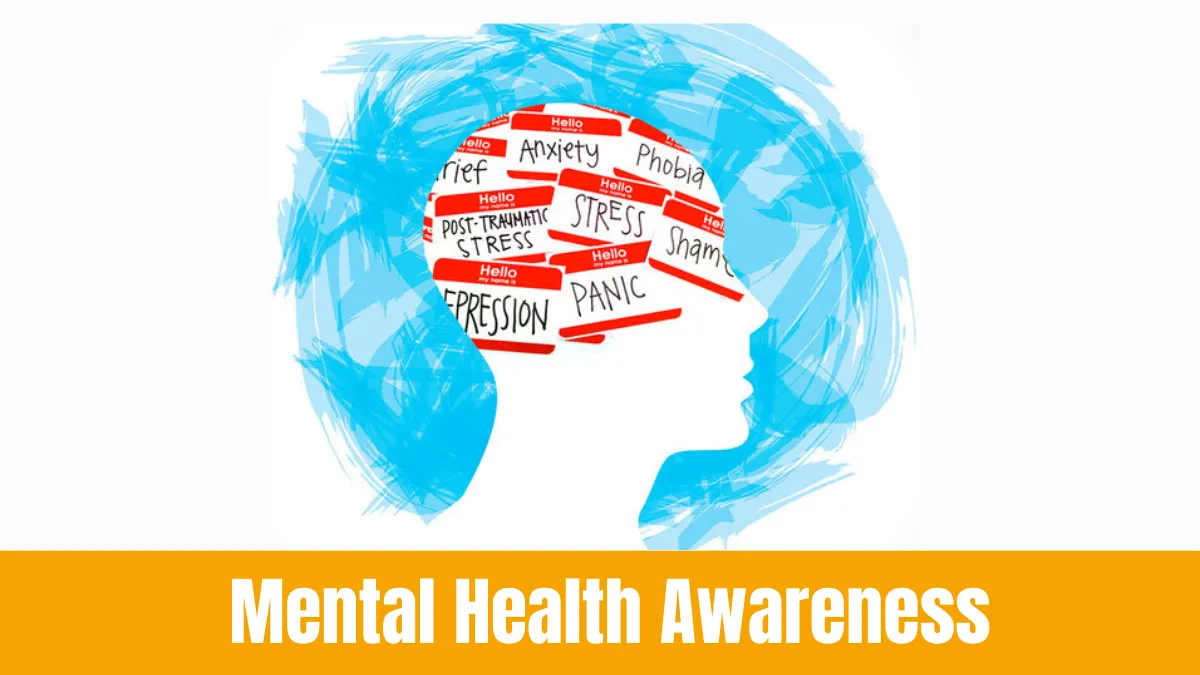Explore the significance of mental health awareness in today’s society. Learn about common mental health issues, effective coping strategies, and how to foster a supportive environment for those in need.
Introduction
Mental health awareness is increasingly vital in our rapidly changing world. With rising stress levels and societal pressures, understanding mental health and promoting awareness can significantly enhance individual well-being and community resilience. This article delves into the importance of mental health awareness, highlighting its impact on individuals, families, and society as a whole.
What is Mental Health Awareness?
Mental health awareness involves understanding and recognizing the importance of mental well-being, identifying mental health disorders, and advocating for individuals who may be struggling. It encompasses various aspects, including education, support systems, and the stigma often associated with mental health issues.
The Need for Mental Health Awareness
- Increasing Prevalence of Mental Health Disorders:
According to the World Health Organization (WHO), approximately 1 in 4 individuals will experience a mental health issue at some point in their lives. The most common disorders include:- Anxiety disorders
- Depression
- Bipolar disorder
- Schizophrenia
- Stigma and Misunderstanding:
Despite the high prevalence of mental health issues, stigma continues to hinder many individuals from seeking help. Mental health awareness aims to dispel myths and promote a more supportive environment. - Impact on Quality of Life:
Mental health issues can significantly affect an individual’s quality of life, relationships, and ability to function in daily life. Raising awareness helps to foster understanding and empathy, enabling better support for those affected.
Common Mental Health Issues
Understanding common mental health issues is crucial for awareness and effective support. Here are some prevalent disorders:
1. Anxiety Disorders
Anxiety disorders are characterized by excessive fear or worry. Common types include:
- Generalized Anxiety Disorder (GAD)
- Panic Disorder
- Social Anxiety Disorder
2. Depression
Depression affects millions worldwide and can manifest in various forms, including:
- Major Depressive Disorder
- Persistent Depressive Disorder (Dysthymia)
3. Bipolar Disorder
Bipolar disorder involves extreme mood swings, from manic highs to depressive lows. It can significantly impact daily functioning and relationships.
4. Schizophrenia
Schizophrenia is a severe mental health disorder characterized by distorted thinking, perceptions, and emotional responsiveness.
The Benefits of Mental Health Awareness
Raising awareness about mental health can lead to numerous benefits, including:
Improved Understanding
- Education:
Providing educational resources about mental health can help individuals recognize symptoms and seek help. - Informed Conversations:
Mental health awareness fosters open discussions, encouraging individuals to share their experiences and support each other.
Enhanced Support Systems
- Community Support:
Communities that prioritize mental health awareness create supportive networks for individuals in need. - Workplace Initiatives:
Many organizations are now implementing mental health programs, creating a healthier work environment.
Reduced Stigma
- Challenging Stereotypes:
Raising awareness can challenge stereotypes and misconceptions, leading to a more accepting society. - Encouraging Help-Seeking Behavior:
When stigma is reduced, individuals are more likely to seek help without fear of judgment.
Strategies for Promoting Mental Health Awareness
To effectively promote mental health awareness, consider the following strategies:
1. Educational Campaigns
- Workshops and Seminars:
Host events to educate the community about mental health issues and resources available for support. - Online Resources:
Utilize social media and websites to share informative content on mental health topics.
2. Collaboration with Mental Health Organizations
Partner with local mental health organizations to create impactful campaigns and initiatives.
3. Encouraging Open Discussions
- Community Forums:
Create safe spaces for individuals to discuss their mental health experiences and share coping strategies. - Support Groups:
Establish support groups where individuals can connect and share their challenges in a confidential environment.
4. Training for Professionals
- Mental Health First Aid Training:
Provide training for educators, employers, and healthcare professionals to help them recognize and respond to mental health crises.
Frequently Asked Questions (FAQs)
1. Why is mental health awareness important?
Mental health awareness is crucial for reducing stigma, promoting understanding, and encouraging individuals to seek help. It helps create a supportive environment for those struggling with mental health issues.
2. How can I support someone with a mental health issue?
- Listen Actively:
Offer a non-judgmental ear and let them express their feelings. - Encourage Professional Help:
Suggest seeking help from a mental health professional if they are comfortable. - Educate Yourself:
Learn about their condition to better understand what they’re going through.
3. What are some signs of mental health issues?
Common signs include:
- Changes in mood or behavior
- Withdrawal from social activities
- Changes in sleep or appetite
- Difficulty concentrating
4. How can I promote mental health awareness in my community?
- Organize educational events
- Share resources on social media
- Collaborate with local mental health organizations
5. Where can I find mental health resources?
- Local Mental Health Organizations:
Search for organizations in your area that offer support services. - Online Resources:
Websites like MentalHealth.gov and the National Alliance on Mental Illness (NAMI) provide valuable information.
Conclusion
Mental health awareness is a vital aspect of fostering a compassionate and supportive society. By educating ourselves and others, reducing stigma, and encouraging open discussions, we can create an environment where individuals feel safe to seek help and support. As we continue to advocate for mental health awareness, we pave the way for healthier communities and a better understanding of mental well-being.
Disclaimer:
The information provided in this article is for educational purposes only and should not be considered a substitute for professional medical advice, diagnosis, or treatment. Always seek the advice of your physician or other qualified health provider with any questions you may have regarding a medical condition.
